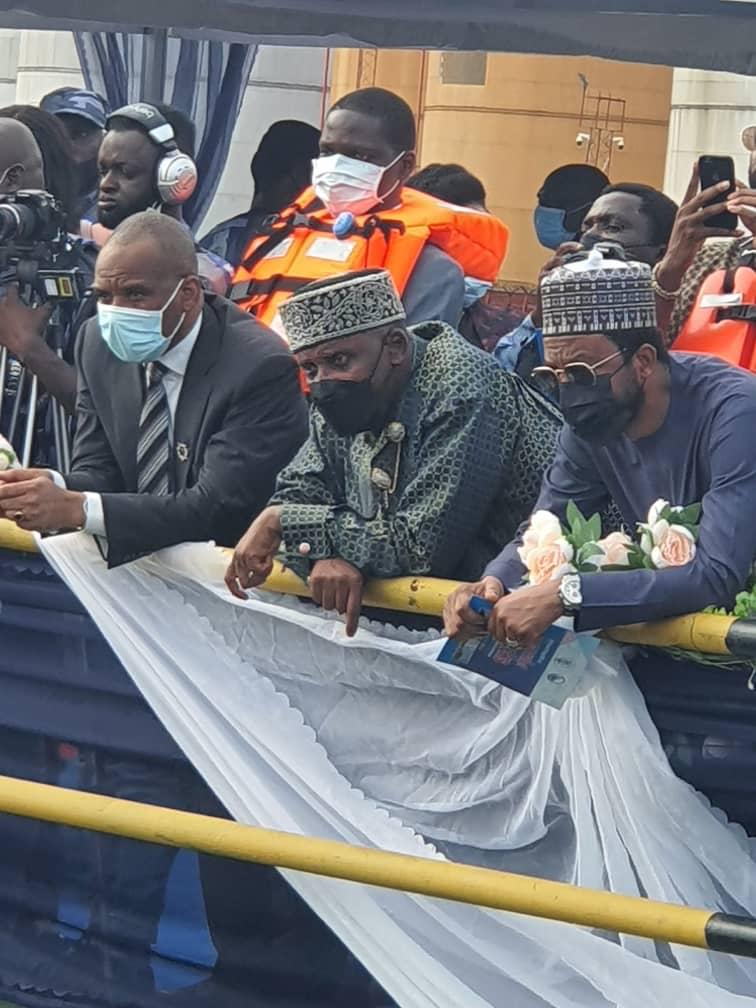
The Minister of Transportation, Rotimi Amaechi, has accused some Nigerians who parade themselves as ship owners of not actually owning ships.
Speaking in Lagos on Friday when he flagged off an exercise to remove wrecks from the waterways, Amaechi also said that contrary to his expectations, the USD195 million Deep Blue project has not succeeded in eliminating piracy and maritime crimes.
The Minister also identified disunity among industry stakeholders as a major hindrance to the progress of the maritime sector in Nigeria.
He said, “How many of you in the maritime sector are united? Beginning from the press. It is not possible. I’ve instructed the press to put themselves together, they said no. You will be hearing the maritime Lucas association, the maritime evil press association.
“When I discovered that there are rancor in the industry, I stayed afar. If you discovered that there is friction and fight in a department under your ministry, you leave that agency and move to an agency more serious.
“It is only in the Nigerian maritime sector that you have ship owners that don’t have ships. So, if I am dealing with ship owners that don’t have ships, what do I do? I move to the railway where they are serious and business-minded.
“When I came into government, my focus was on the maritime industry. The enthusiasm and passion were there. I even took you to Singapore to get foreign investors that would give us 40% while the other 60% would be ours. We got an investor and I instructed my people to go and arrange their 60%. Till today, they are still arranging.
“Basically, our maritime sector has a lot of problems. First, there are people who make money from illegalities in the industry. Those people would never allow you to succeed. I am the first Minister that has fought their battle without being removed. It is a sector that if you put your head in it, they would chop it off.
“I’ll sit with the stakeholders again. Mind you, I’ve met with them once. Now, let’s go to the Deep Blue project. Do you think it is working? No! Piracy has reduced but crime in the oil sector still continues. They are still making their illegal money.”
He said the wreck removal exercise will guaranty safety of navigation and open up the prospects of new investments in the maritime industry.
“This would tremendously help the Federal Government’s economic diversification drive and enhance Nigeria’s standing within the global maritime community,” he said.
Speaking earlier, the Director-General, Nigerian Maritime Administration and Safety Agency (NIMASA), Bashir Jamoh, said successful removal of the wrecks and derelicts would restore confidence in Nigerian waters and eliminate obstacles to smooth, safe, and profitable navigation.
“These wrecks inhibit the operation of shipping companies, which constantly strive to increase efficiency in order to remain in business. As a result, most of the shipping companies usually avoid operating or investing in areas where navigational hazards are identified due to high insurance premium charges,” he said.
He said with the elimination or reduction of the costs associated with insurance, survey and charting of wrecks, the cost of shipping would drop to the benefit of mariners and other stakeholders in the maritime industry.
“It is pertinent to state that the benefits that would be derived upon completion of the exercise extend to other areas of maritime core functions, such as search and rescue services, Cabotage monitoring, as well as prevention and mitigation of marine pollution,” he said.
The first phase of the wreck removal exercise took place along the Badagry Creek.
